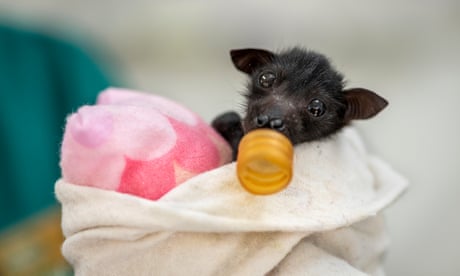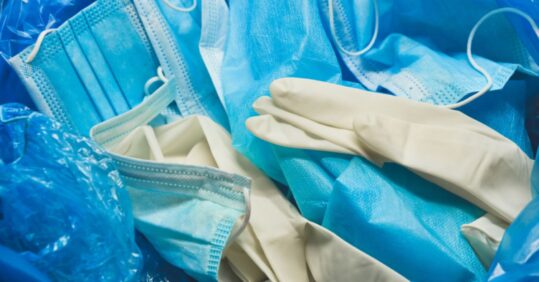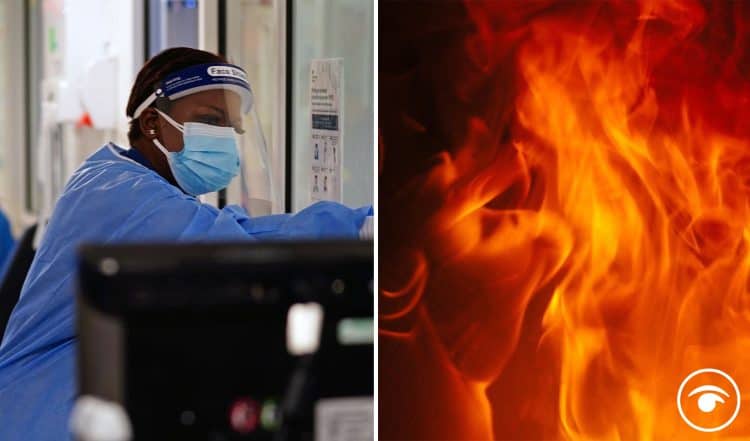Australian research shows six in 10 have sought professional help for their mental health

Australian Associated Press
Sat 11 Jun 2022
New research shows nearly 70% of veterinarians have lost a colleague or peer to suicide and about six in 10 have sought professional help for their mental health.
For those with decades of experience, including former Australian Veterinary Association national president Dr Warwick Vale, the figures come as no surprise.
Like many, he’s struggled with mental illness and had close colleagues take their own lives.
“[A lot] don’t have [my] same sort of optimism and haven’t probably had the same luck or good fortune to have the benefits realised for themselves in their career,” Vale told AAP.
Advertisement
“That’s not right - it’s a tragedy. It’s an issue we’ve got to solve and I think the problem is probably getting worse.”
The research, led by Dr Nadine Hamilton with the backing of petfood maker Royal Canin, reflects long-running issues in the sector.

ER for animals: inside Australia's Currumbin Wildlife hospital – a photo essay
Another larger study by the veterinary association showed about 67% of vets have experienced a mental health condition at some point.
Vale puts vets’ worsening mental health down to increasing client demands, changes in attitudes towards veterinary care, increasing costs and dealing with people who can’t afford them.
“It’s quite demotivating for vets to have to cut corners on treatment or euthanise animals because of a lack of resources to treat the animal,” he said.
Vale said the profession has a lot of “housekeeping” to do when it comes to better supporting workers and ensuring the industry’s viability.
He said some work 12-hour days without lunch breaks, earn $50,000 a year and deal with abuse from clients.
“We’re trying to fix people after they’re broken, when really we should be concentrating on preventing them from breaking,” he said.
Melbourne vet Dr Morgan Baum was lucky enough to find a supportive workplace that mitigates the hardships faced by other new graduates.
However, she and Vale agreed there’s a big disconnect between vets and the community.

Mental health issues more common among young Australians, national survey suggests
Hamilton’s research found nearly eight in 10 Australian pet owners do not know the incidence of suicide among vets is four times the national average.
About four in 10 believe vets’ salaries are more than $100,000, when entry-level vets with up to three years’ experience earn an average of $87,810.
“People are truly treating their pets as their children and if they want the best care … it’s important vets are of sound mind and happy, and enjoying what they’re doing to provide that care,” Baum said.
She said vets were constantly in a flux of highs and lows; moving from one euthanasia appointment to an appointment with a family’s new puppy or kitten.
“When you go home with your family and friends, you’re just too drained to talk to anyone.”
Vale said unlike medical services for humans, animal services received little government support, with no tax incentives for pet care and few resources for training.
He pointed to one vet practice in Western Australia that has had to suspend its weekend emergency service.
“Without a community contribution and the community recognising that we’ll be poorer and worse off without a veterinary service … then we’re going to see closure, especially in country and regional areas,” Vale said.
In Australia, the crisis support service Lifeline is 13 11 14. In the UK and Ireland, Samaritans can be contacted on 116 123, or email jo@samaritans.org or jo@samaritans.ie. In the US, the National Suicide Prevention Lifeline is at 800-273-8255 or chat for support. You can also text HOME to 741741 to connect with a crisis text line counselor. Other international helplines can be found at befrienders.org






.jpg)





